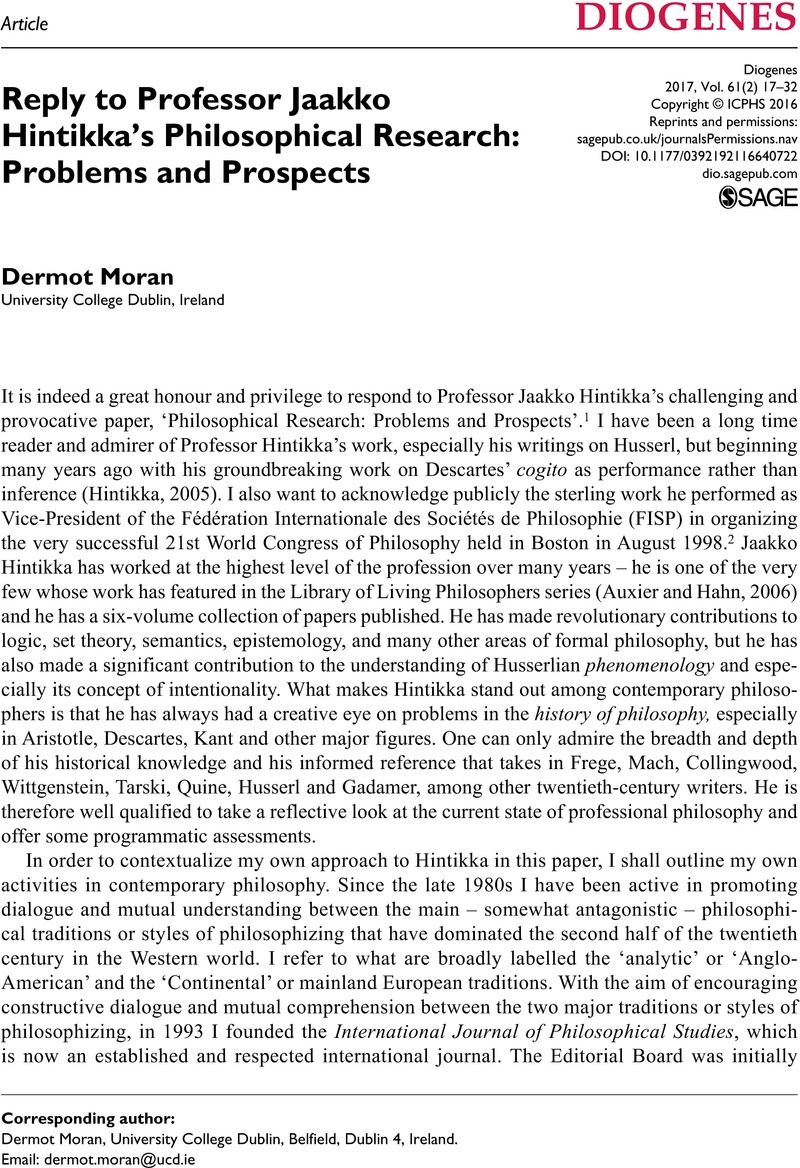Patočka, J (
1991)
Der Subjektivismus der Husserlschen und die Forderung einer asubjektiven Phänomenologie. In
Patočka, ,
Die Bewegung der menschlichen Existenz.
Phänomenologische Schriften ii, hrsg. v. Klaus Nellen, Jírí Nemec und Ilja Srubar.
Frankfurt:
Klett-Kotta.
Google Scholar 